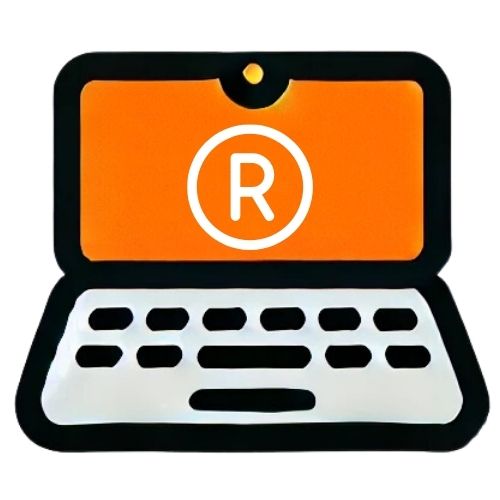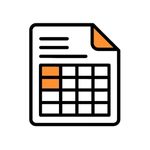
Managing your money has become more necessary for many South Africans due to rising living costs and household expenses. A budget calculator is a simple tool that helps track your income, expenses, and spending habits. If you’re saving, paying off debt, or stretching your salary, a budget calculator can help you stay in control.
Key Takeaways
- Track Your Finances Easily: A budget calculator helps South Africans manage income, expenses, and savings, offering a clear view of monthly finances.
- Choose the Right Tool: Options include online calculators, mobile apps, spreadsheets, and bank-based tools, allowing users to select what fits their needs best.
- Keep It Simple and Consistent: Sticking to a basic structure, reviewing regularly, and adjusting for changes ensures long-term budgeting success.
About Arcadia Finance
Arcadia Finance connects you with 19 reputable lenders, all registered with South Africa’s NCR. Enjoy a simple, secure application process with no fees, fast results, and trustworthy loan options that match your financial situation and goals.
What Is a Budget Calculator?
A budget calculator is a tool that helps you plan and manage your money by showing how much you earn, spend, and save each month. It gives you a clear picture of your financial situation, helping you make better decisions about your spending and saving habits. If you’re working to pay off debt, save for a big purchase, or simply make your salary last through the month, a budget calculator can be a valuable tool.

How a Budget Calculator Works
Using a budget calculator involves a few straightforward steps:
Input Your Income
Start by entering your total monthly income. This includes your salary after tax, any side hustle earnings, rental income, or other sources of money.
List Your Expenses
Next, detail all your monthly expenses. These can be divided into categories such as:
- Housing: Rent or bond payments, rates, and utilities.
- Transportation: Fuel, public transport, car maintenance.
- Food: Groceries and dining out.
- Insurance: Medical aid, car insurance, life insurance.
- Debt Repayments: Credit cards, personal loans.
- Savings: Emergency fund, retirement contributions.
- Entertainment: Subscriptions, hobbies, outings.
Calculate the Balance
The calculator subtracts your total expenses from your total income to show you what’s left over. This balance can be positive (a surplus) or negative (a deficit).
| Income & Expenses | Amount (ZAR) |
|---|---|
| Total Monthly Income | |
| Fixed Expenses | |
| Housing (Rent/Bond, Utilities) | |
| Transportation (Fuel, Public Transport) | |
| Food (Groceries, Dining Out) | |
| Insurance (Medical, Car, Life) | |
| Debt Repayments (Loans, Credit Cards) | |
| Savings (Emergency, Retirement) | |
| Entertainment (Streaming, Hobbies) | |
| Total Monthly Expenses | R0.00 |
| Remaining Balance | R0.00 |
Ready to turn numbers into a plan? Our How to Create a Budget guide walks you through setting realistic spending limits, categorising expenses and tracking progress.

Types of Budget Calculators Available in South Africa
Budget calculators come in various forms to suit different preferences and financial goals. In South Africa, you can choose from online tools, mobile apps, spreadsheets, and calculators offered by financial institutions. Here’s an overview of the main types:

Online Budget Calculators
Online budget calculators are accessible through web browsers and are often provided by financial institutions or financial education platforms. They allow you to input your income and expenses to get an overview of your financial situation.
- Old Mutual Budget Calculator: This tool uses the 50/30/20 rule to help you allocate your income towards needs, wants, and savings.
- FNB Budget Calculator: Offered by First National Bank, this calculator helps you plan your budget by providing insights into your expenses.
- JustMoney Budget Calculator: This calculator assists you in understanding your expenses and seeing your actual monthly budget.

Mobile Budgeting Apps
Mobile apps offer the convenience of managing your budget on the go. They often come with features like expense tracking, bill reminders, and financial goal setting.
- Vault22 (formerly 22seven): Developed by Old Mutual, this free app allows you to link your bank accounts, credit cards, and investments to get a complete view of your finances.
- Spendee: This app helps you track your budget, spending habits, and cash flow. It offers both free and premium versions.
- Goodbudget: Based on the envelope budgeting method, this app is suitable for planning budgets and tracking debt.

Spreadsheet-Based Tools
For those who prefer a more hands-on approach, spreadsheet-based budget calculators offer flexibility and customisation. They allow you to input detailed income and expense data and can be tailored to your specific needs.
- Old Mutual Finance Budget Tool: An Excel spreadsheet that helps you plan your monthly budget.
- Nedbank Budget Spreadsheet: Provides a comprehensive template to manage your income and expenses.
- Sanlam Budget Tool: An Excel-based tool to assist in tracking your financial activities.

Built-In Calculators from South African Financial Institutions
Many South African banks and financial institutions offer built-in budget calculators as part of their online services. These tools are designed to help customers manage their finances more effectively.
- Discovery Budgeting Tool: This tool takes into account your salary, expenses, and other income streams to help you draw up a monthly budget.
- MFC Budget Calculator: Provided by MFC, this calculator assists in determining how much you can allocate towards monthly finance payments.
Got your surplus number? Fantastic! But how do you put it to work? Check out these Budgeting Tips for First-Time Savers for clever hacks on building an emergency pot, automating savings and keeping temptations at bay.

Budgeting Techniques And Philosophies
There are several methods to help build a personal budget plan. These approaches vary in detail and structure, so you can choose one that fits your lifestyle and financial goals.
50/30/20 Method
This method recommends dividing your income into three basic categories. Around 50% should go towards essential expenses, such as housing, utilities, and groceries. Then, 30% can be allocated to non-essential items, like entertainment or personal shopping. The remaining 20% should be directed towards savings or investments. If you live with family or own your home outright, you may spend less on needs and more on savings or wants. On the other hand, if housing costs are high, adjustments may be needed to avoid overspending. The percentages can be modified to suit your circumstances, as the focus is on understanding your general spending habits rather than tracking every item.
80/20 Method
This method keeps things simple by setting aside 20% of your income for saving and investing, while allowing the remaining 80% to cover all other expenses. It is suitable for people who prefer not to track every expense in detail. You can adjust the split depending on your financial goals. Some people aiming for early retirement or trying to boost their retirement savings might shift to a 70/30, 60/40, or even a 50/50 split. The key is to consistently save a portion of your earnings and use the rest for your lifestyle.
Zero-Based Budgeting
A zero-based budget gives every rand a specific purpose. Your income, minus your total savings and spending, should equal zero. This method suits people who prefer precise financial planning. It requires you to list all expenses, including both fixed and variable costs, and allocate your income to cover them exactly. If you have complex finances, such as multiple income sources and many monthly expenses, this method may become time-consuming and difficult to manage. However, it can help track every cent and ensure nothing is left unaccounted for.
The Envelope System
This approach involves setting a fixed amount for each spending category at the start of the month. Once you reach the limit for a category, you stop spending in that area unless you shift funds from another category. For instance, if your electricity budget is R80 but your bill is R100, you’ll need to move R20 from another category, such as groceries, to make up the difference. This method originally involved using physical cash in labelled envelopes, but today, you can track it digitally or on paper. It can be useful for those trying to control overspending or working within a tight budget, as it sets clear boundaries and reinforces discipline in spending.

Tips For Managing Your Budget Successfully
Managing budget categories well is not about getting everything perfect. It’s about building practical habits that suit your lifestyle and help you stay consistent. The aim is to set up a budgeting method you can maintain over time.
Start With The Basics
Trying to change your entire financial setup at once is a common mistake. A better approach is to begin with a few key categories to make tracking more manageable. There’s no need to break everything into highly detailed sections right away.
Focus on your main spending areas first. These usually include housing, transport, groceries, and savings. For any other costs that don’t fall into these groups, use a temporary category such as “miscellaneous.” Over time, you’ll notice trends that help you refine these entries more accurately.
Track your spending for a full month before making adjustments. This initial period allows you to see how your budget reflects your actual life rather than an ideal version of it. Think of this as a practical trial or an opportunity to collect real spending data before deciding what needs to change.
Review Regularly And Stay On Track
Once your basic setup is in place, keeping it consistent is essential. Start by going through your transactions once a week. This short check-in lets you assign spending to the right categories and spot any early warning signs if you’re going over your planned limits.
These weekly reviews help build towards a more detailed monthly review. Here, you can check whether some categories are regularly going over or staying under budget. These patterns can help you fine-tune your budget over time.
As you gain more confidence, conduct quarterly reviews for broader planning. These are useful when seasonal costs come up or if your financial priorities start to shift. An annual review is the time to evaluate everything and see if your categories still match your financial goals or if your situation has changed.
Keep It Simple And Practical
Avoid making your system overly complicated. Start with a solid base and review it often to keep it useful. Trying to track every small expense using too many categories often leads to frustration and giving up.
Look for ways to simplify your setup. If a few categories make up only a tiny part of your total spending, group them under a general heading. For example, you could combine “books,” “movies,” and “streaming” into a single “entertainment” category.
Remove any unused categories after three months. If you’re not using them, they’re only adding clutter. Instead of setting hard limits, consider using percentage-based targets for certain categories. This provides more flexibility without losing control.
In the end, the best system is one you can keep using over time. It doesn’t need to be perfect or highly detailed, but it instead just needs to be consistent and easy to follow.
Conclusion
Using a budget calculator is one of the most effective ways for South Africans to take control of their finances. If you’re budgeting for monthly expenses, saving for future goals, or managing debt, having a clear picture of where your money goes can make a big difference. With various tools available, ranging from online calculators to mobile apps and spreadsheets, you can choose a method that suits your preferences and lifestyle. The key is to stay consistent, review your budget regularly, and make adjustments as your income or expenses change. Budgeting doesn’t need to be complicated; it just needs to work for you.
Frequently Asked Questions
A budget calculator helps you track your income, expenses, and savings. It gives you a monthly overview of your financial situation and helps with better money management.
Yes, many are available for free, including tools from Old Mutual, FNB, and JustMoney. There are also free mobile apps like Vault22 and budgeting spreadsheets from major banks.
Yes, by showing exactly where your money goes, a budget calculator can help you find extra funds to allocate towards debt repayments and avoid unnecessary spending.
It’s best to check your budget weekly for small updates and do a full review each month. This helps you stay on track and quickly address any unexpected expenses.
It depends on your preference. Mobile apps are convenient and often link to your bank account, while spreadsheets offer more control and flexibility for those who prefer manual tracking.
Fast, uncomplicated, and trustworthy loan comparisons
At Arcadia Finance, you can compare loan offers from multiple lenders with no obligation and free of charge. Get a clear overview of your options and choose the best deal for you.
Fill out our form today to easily compare interest rates from 19 banks and find the right loan for you.


